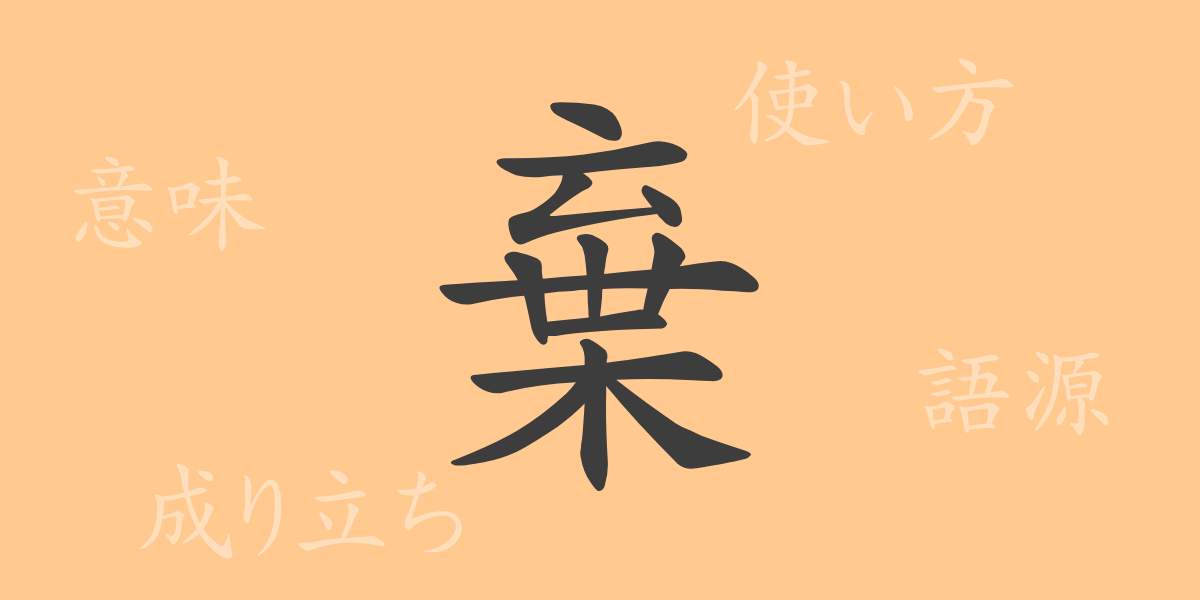The Japanese Joyo Kanji (常用漢字), which supports the rich expressiveness of the Japanese language, each have a deep history and meaning. This time, we focus on the kanji “棄” (き), which is not commonly seen in everyday life. What is the etymology of this kanji, and how is it used in our language? This article delves into the origins, meaning, usage, and various idioms and proverbs associated with “棄” (き).
Origins (Etymology) of 棄
The kanji “棄” (き) was born in ancient China. It is composed of “木” (き), meaning wood, and “厥” (けつ), which signifies the act of abandoning. This stems from the concept of cutting down and discarding wood, which evolved to mean “to discard” or “to abandon”. It has long been used to express the concept of letting something go or discarding something as worthless.
Meaning and Usage of 棄
“棄” (き) carries the meaning of “to discard” or “to abandon”. Specifically, it refers to the action of intentionally discarding something or letting go of something deemed worthless. In legal terms, it can also be used to mean the renunciation of rights. Additionally, there are emotional usages, such as losing hope, in a psychological sense.
Readings, Number of Strokes, and Radical of 棄
“棄” (き) has various readings in Japanese.
- Readings: The on’yomi (Chinese reading) is “キ” (き), and the kun’yomi (Japanese reading) is “す.てる” (suteru).
- Number of Strokes: “棄” (き) is an 11-stroke kanji.
- Radical: The radical is “木” (き), but the “厥” (けつ) part also attracts attention.
Idioms, Phrases, and Proverbs Using 棄 and Their Meanings
There are numerous idioms, phrases, and proverbs that include “棄” (き). Here are some examples and their meanings:
- 棄権 (きけん, kiken): To voluntarily relinquish one’s rights in a competition or vote.
- 自暴自棄 (じぼうじき, jiboujiki): To abandon oneself and think that nothing matters anymore.
- 見捨て棄てる (みすてすてる, misutesuteru): A redundant expression meaning to completely abandon someone.
- 投げ棄てる (なげすてる, nagesuteru): To discard something by throwing it away without care.
Conclusion on 棄
While the kanji “棄” (き) carries negative connotations of discarding or abandoning, it plays an important role in expressing legal and emotional states. Expressions using “棄” (き) may not appear frequently in Japanese, but when they do, it is worth savoring their profound meaning. We hope that through this article, you have gained an understanding of the history and significance of “棄” (き) and have a renewed appreciation for the depth of the Japanese language.

























